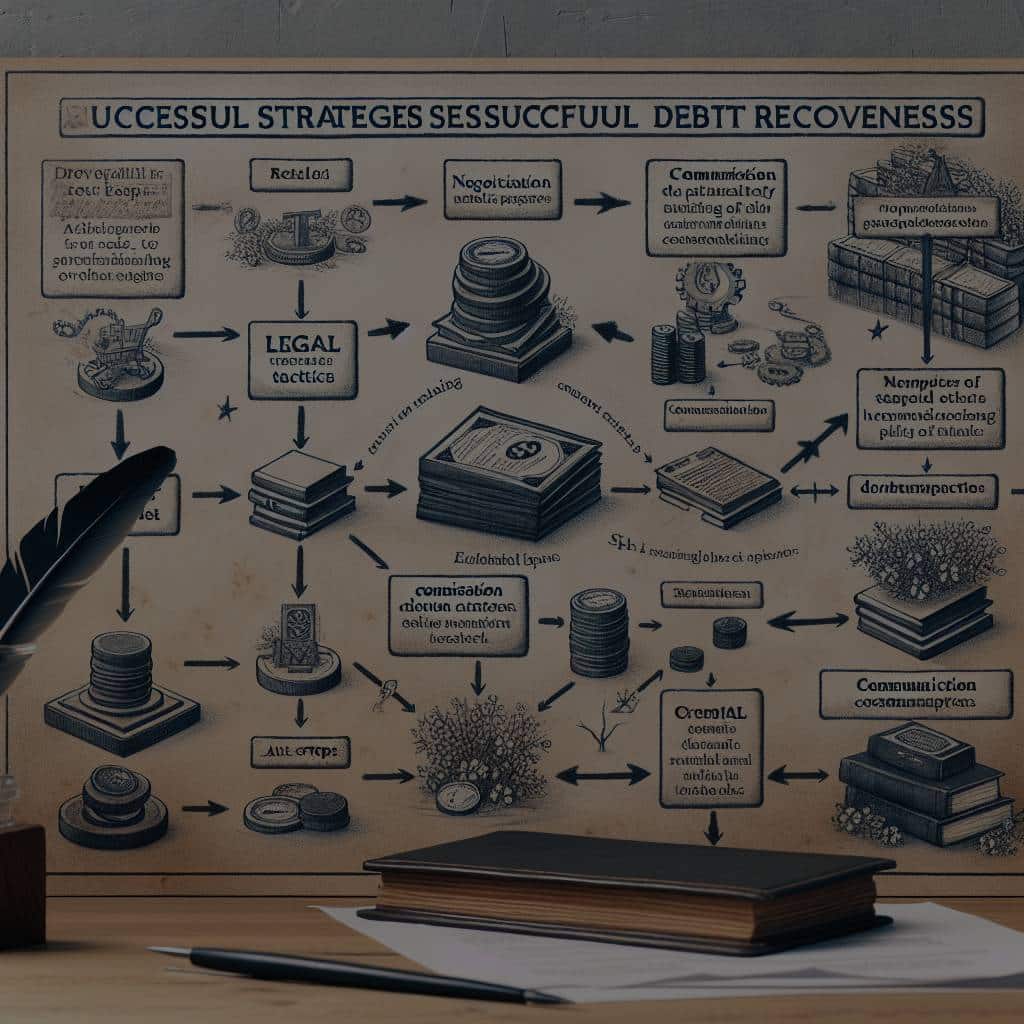What Are the Strategies for Successful Debt Recovery in UK Small Businesses?

When you’re running a small business, late or non-payment of invoices can be a real headache. It’s a common problem, but if it’s not managed correctly, it can cause significant financial strain and potentially put your business at risk. Debt recovery is an essential part of financial management, and having a clear, effective strategy in place can make all the difference. In this article, we’re going to look at some of the best strategies you can use to ensure successful debt recovery in UK small businesses.
The Importance of Having a Clear Credit Policy
Before you get to the stage of debt recovery, it’s crucial to have a clear and transparent credit policy in place. A credit policy sets out your terms of payment, and lets your customers know what is expected of them from the outset.
Also to read : Sustainable men's fashion: top brands, accessories, and shoes
A credit policy should be consistently enforced to be effective. It should outline how you manage credit limits, payment terms, and late payment fees. By having this information in place, you give your customers a clear understanding of what is expected, and it also helps to protect your business against non-payment or late payment.
It’s also good practice to review your credit policy regularly to ensure that it is still fit for purpose. It should be flexible enough to accommodate changes in economic conditions or shifts in your customer base.
Also read : Secure your goods with expert packaging machinery solutions
Effective Communication with Debtors
If a customer does not pay within the agreed time, it’s essential to communicate with them promptly and effectively. This is where having a clear process in place can help.
You should begin with a polite reminder, either by email or phone. If the debt remains unpaid, you can escalate your communication to a formal written demand. This letter should set out the outstanding amount, any interest or late payment charges, and give a clear deadline for payment.
If the debt is still unpaid after this, you may need to consider legal action. It’s essential to be mindful of the potential costs and the impact on customer relationships before taking this step.
Engaging a Debt Collection Agency
Often, engaging a debt collection agency can be a cost-effective way to recover debts. These agencies have specialist knowledge and experience in debt recovery and can often achieve results more quickly and efficiently than you might be able to on your own.
Many businesses worry about the impact of debt collection on their relationship with their customers. However, professional agencies will always work within the law and strive to maintain good customer relationships. They can often negotiate payment plans or other solutions that help both parties.
Engaging a collection agency should be part of your overall debt recovery strategy, and you should have a clear policy in place for when and how you will use these services.
Legal Action for Debt Recovery
If all else fails, taking legal action may be the only way to recover a debt. This might involve making a claim through the small claims court, which can deal with claims for up to £10,000 in England and Wales, and £5,000 in Scotland and Northern Ireland.
Remember that legal action should be a last resort, as it can be expensive and there is always the risk that you will not recover the full amount. Before taking legal action, it’s worth seeking advice from a solicitor or business advisor to weigh up the costs and benefits.
Using Technology to Help Manage Debt Recovery
Technology can be a powerful tool in managing your debt recovery process. There are many software solutions available that can help you track overdue payments, send reminders, and manage the debt recovery process.
Some software also integrates with your accounting system, providing a clear picture of your financial position and helping you to identify potential issues before they become serious problems.
Using technology can free up your time to focus on other areas of your business, and can also help to professionalise your debt recovery process.
In conclusion, effective debt recovery is about more than just getting your money back. It’s about protecting your business, maintaining good customer relationships, and ensuring your financial stability. By having a clear strategy in place, you can minimise the impact of non-payment and ensure your business stays on a firm financial footing.
Utilising County Court for Business Debt Recovery
As a last resort, it can sometimes be necessary for small businesses to utilise the county court system for debt recovery. This might happen when all attempts to communicate with a debtor have failed or when a debtor disputes the amount they owe.
When issuing a county court claim, the debtor will receive a court summons. This is a formal notice that they need to pay the debt. If they fail to respond, the court can issue a county court judgement (CCJ) against them. This is a legal declaration that they owe you money, and it can have severe implications for their credit rating.
Before you decide to take this route, you should be fully aware of the potential costs involved. These can include court fees, solicitor’s fees, and the cost of any bailiff services required to enforce the judgement. And again, there’s no guarantee that you’ll be able to recover the full amount of the debt, particularly if the debtor is experiencing financial difficulties.
There are other potential downsides too. Taking legal action can strain your relationship with the debtor and could potentially damage your business’s reputation. Therefore, it’s crucial to consider all of these factors before deciding to use the county court system for debt recovery.
The Role of Credit Control in Mitigating Business Debts
The best way to manage business debts is to prevent them from occurring in the first place. One of the most effective ways to do this is through strong credit control. Credit control involves closely managing the credit you extend to customers and taking steps to ensure that payments are received promptly.
Effective credit control starts with setting clear payment terms at the outset of any business relationship. These terms should include the payment deadline and any late payment penalties.
Next, you should actively monitor your accounts receivable. This is the money that your customers owe you. If you notice that a payment is overdue, you should take immediate action. This might involve sending a reminder email, making a phone call, or even stopping the provision of goods or services until the payment is received.
Credit control also involves responding quickly to any issues that arise. For example, if a customer disputes an invoice, you should act quickly to resolve the dispute and secure payment.
Overall, effective credit control can significantly reduce the risk of late payments and non-payment, helping to improve your cash flow and reduce the need for debt recovery action.
Conclusion
Successfully managing debt recovery is an essential part of running a small business. It involves a multi-faceted approach, encompassing preventative measures such as robust credit control, effective communication strategies, utilisation of technology, engagement of collection agencies, and, if necessary, legal action.
Remember, the goal isn’t only about recovering the owed money. It’s also about maintaining positive customer relationships, protecting your business’s reputation, ensuring financial stability, and fostering a healthy cash flow. By having a clear and comprehensive debt recovery strategy, small businesses can navigate the challenge of debt recovery more successfully and keep their business on a stable financial footing.
